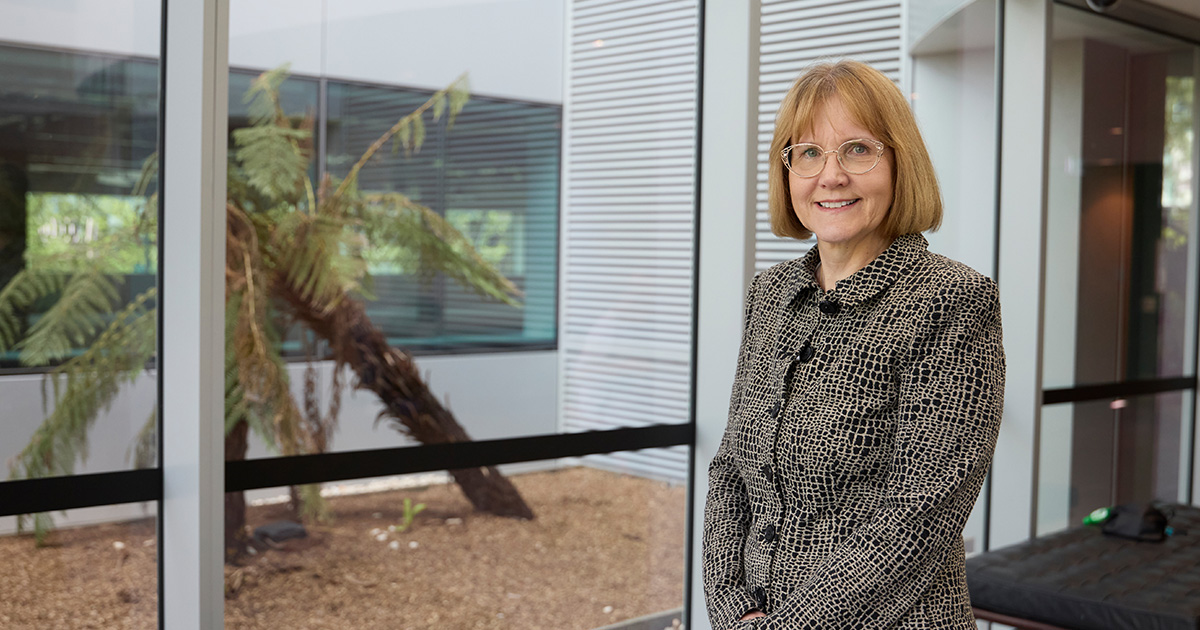The Woolcock Institute of Medical Research

Hope for lung cancer
Director of the Woolcock Centre for Lung Cancer Research Professor Maija Kohonen-Corish knows the fear, mental turmoil and sleepless nights that follow being told you have cancer.
Several years ago, while working as a cancer researcher at the Garvan Institute, she was prescribed hormone replacement therapy and after only a few weeks a lump appeared in her armpit.
“The lump just grew so quickly,” she says. “Several possibilities were mentioned but cancer was not the top option. A mammogram of the breasts was clean. An ultrasound of the lymph node was inconclusive, then a needle biopsy was taken.”
She visited her GP on a Friday night and was given the pathology report from the biopsy which revealed a cancer diagnosis but not which type of cancer. They were able to find a surgeon who could see her on the Monday but that meant getting through a very long weekend.
Maija saw her surgeon on the Monday, he removed the lymph node two days later and she had to wait another week for the pathology. “That was a very scary time because it could have been an unknown primary cancer, which is the worst-possible prognosis. When you’re waiting for answers every hour feels like forever, you run every question, every possibility through your head. It’s terrible, waiting to find out.” The surgeon rang her frequently to check in and then, when the results came in, he rang to say: “Good news. It's breast cancer.”
“That was such a relief because we can treat breast cancer. It sounds funny. I don't know that many people would understand that. A lot of people die of breast cancer but when you think about the person who gets the call saying it’s lung cancer – I’ve seen the survival curves. Five-year survival with breast cancer is around 90 percent. With lung cancer it’s 40 percent – that’s a huge difference, honestly.”
In an attempt to localise the cancer in the breast, Maija had a breast MRI but to everyone’s surprise it was clean. The following week she underwent a mastectomy and then had follow-up chemotherapy. Her breast cancer was oestrogen-receptor positive which meant taking anti-oestrogen pills for another 10 years, but she is now cancer-free and taking no medications.
“I didn’t hesitate about having chemotherapy or ask if it was really needed. I wanted to do everything possible, even if there was just a remote chance that it would help. It was awful. It may sound so petty, but my mouth was sore all the time. I lost my sense of taste. I lost my hair. I lost a breast but there’s always reconstruction and the support was wonderful.”
“The support you get personally and the very public support of events like Look Good Feel Better, the Pink Test and charity lunches feels very affirming when you're going through your breast cancer journey. At the same time, I was working in lung cancer and colon cancer and I knew that was something that was missing for people with those diagnoses.”
“So, I’ve become a bit of a defender of lung cancer which is often stigmatised and lung cancer research which doesn’t get as much funding as other cancers.”
Want to stay up to date with our research on sleep and respiratory conditions?
Sign up to our quarterly newsletter
Maija believes that is starting to change. There’s more money for research (even though it’s still a fraction of what other cancers receive) and there’s more support for patients. This year, the McGrath Foundation has expanded its programmes to fund special care nurses for other cancers including lung cancer. The National Lung Cancer Screening Programme started on July 1.
“Lung cancer researchers and clinicians are just the most passionate people. They do it because they want to, not because it’s an easy path – anything but. Everything is a little harder. There’s never money for things like research nurses. It’s hard work and it’s done on very tight budgets.”
“We rely on the goodwill of a lot of people. We have a lot of doctors helping us for free. That’s why I'm so grateful to them for their passion and their patience. You need patience because there’s no easy rewards.”
Maija heads up the Lung Cancer Research Network which was established by former Woolcock Executive Director Professor Carol Armour and Research Leader Professor Paul Young to encourage collaboration and the exchange of ideas that lead to research discoveries that make a real difference to patients.
“In terms of my own diagnosis, the biomarkers that identified the lump in the armpit as breast cancer were lifesaving. My scans were clear, but the biomarkers were definitive so we were able to make informed decisions about my treatment. That’s the science and that was possible because a researcher had done the work to identify those biomarkers. It’s work we’ve been doing in the Woolcock Centre for Lung Cancer Research too.”
“My current research is all about improving treatments, making sure they work as well as they can. Having to make a decision to go down what I knew was going to be a difficult path, I want everybody who has to make that decision to be given the best possible chance that path gives them a good outcome.”
That research focuses on the microbiome and how it can make existing treatments as effective as possible.
“Particularly immunotherapy which is a bit of a buzz word these days and it’s really good when it works. The problem is it still doesn't work for many people – maybe less than half of those it’s given to. I want to improve it for the rest of them. If you have to go through a treatment, I want to make it as good as it can be.”










